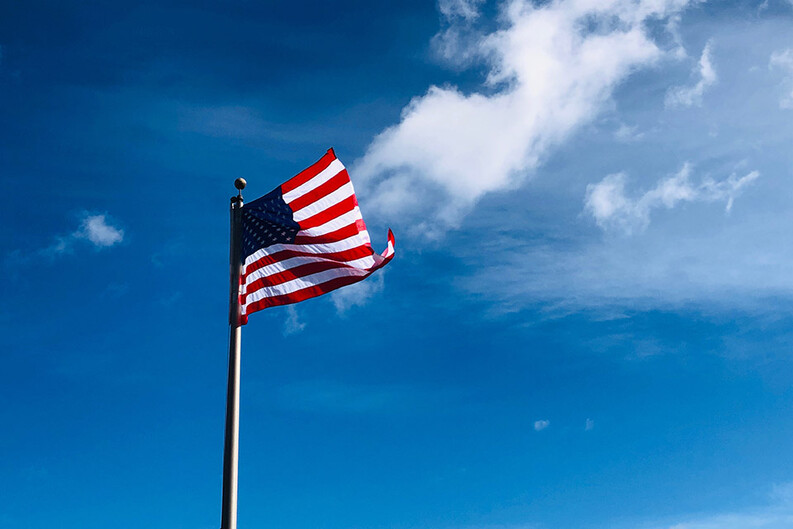Settlement Confirms National Guard Members in State Status May Unionize

The Department of Justice reached a settlement with union plaintiffs in Connecticut on May 17 to confirm that National Guard members on state active duty are free to organize and join labor unions. A federal statute criminalizes military unions in the federal armed forces, but the Justice Department has agreed that the law does not apply to Guard members on state orders. As a result, unions around the country can now support National Guard members on state orders in organizing for better conditions of employment without fear of prosecution under federal law. An active organizing campaign is underway in at least one state.
The plaintiffs are represented by the Yale Law School Veterans Legal Services Clinic4 and co-counsel at Livingston, Adler, Pulda, Meiklejohn & Kelly, PC.
In November 2021, three unions — American Federation of State, County and Municipal Employees Council 4, National Association of Government Employees, Inc., and Civil Service Employees Affiliates Service Employees International Union Local 2001— filed suit in federal court in Connecticut, seeking clarification that the federal statute criminalizing military unions did not apply to National Guard members on state orders.
“This settlement marks a turning point in labor organizing. We now have the clarity we need to invest resources in organizing the state active-duty National Guard,” said Will Attig, Executive Director of the AFL-CIO’s Union Veterans Council. “Guard members will have the same access to collective representation as do their fellow state employees.”
“Members of the Connecticut National Guard now have additional reassurances that our rights will be upheld through union advocacy,” said Walter Morton, a member of the Connecticut National Guard. “We can prioritize doing our jobs to help our home states respond to natural disasters, public health crises, and other emergencies without worrying about not having a seat at the table.”
As part of the settlement in AFSCME v. Garland, the Department of Justice’s position on the ability of National Guard members on state orders to organize has been distributed to all 54 National Guard Human Resources departments.
“Before this this case, unions were understandably deterred from organizing state active-duty National Guard members due to the potential for criminal penalties,” said Rekha Kennedy ’23, a law student intern at Yale’s Veterans Legal Services Clinic, which represented the plaintiffs in the lawsuit. “With this reassurance from the DOJ, unions nationwide can begin the process of building relationships with Guard members without fear of prosecution.”
In Texas, Governor Greg Abbott’s Operation Lone Star has sent thousands of Guard members sent to the border on involuntary orders for an ill-defined mission, where they have faced problems ranging from subpar housing conditions to payroll issues, according to the lawsuit.
“Our Connecticut union Brothers and Sisters obtained this outstanding legal victory just in time to help Texas National Guard members who have been mistreated and disrespected,” Texas AFL-CIO President Rick Levy said. “Our troops always serve with distinction in difficult circumstances, but no one should expect them to tolerate year-long disruptions to their lives in service to an ineffectual multi-billion-dollar political stunt. We stand with troops who joined the labor movement to preserve their dignity and livelihoods.”
“I am excited to push forward for a greater voice for Texas National Guard members,” said Hunter Schuler, a member of the Texas National Guard who was one of the first Guard members to join the Texas State Employees Union and who has been involved with organizing efforts there. “We’ve been rapidly activated with no notice, often working long shifts on irregular schedules, and living in poor conditions far from our families and homes. Meanwhile, our education benefits have been cut, we’re subjected to inconsistent and unclear leave policies, and we lack benefits comparable to those received on federal service such as health insurance. The DOJ’s position confirms that we are free to organize and fight for changes that every service member deserves.”
Established in 2010, the Veterans Legal Services Clinic4 is part of the Jerome N. Frank Legal Services Organization5 at Yale Law School. Students and faculty represent Connecticut veterans in litigation before administrative agencies and courts, on benefits, discharge upgrade, and other civil-rights matters. In addition, students represent local and national organizations in state and federal policy advocacy relating to the legal needs of veterans.


